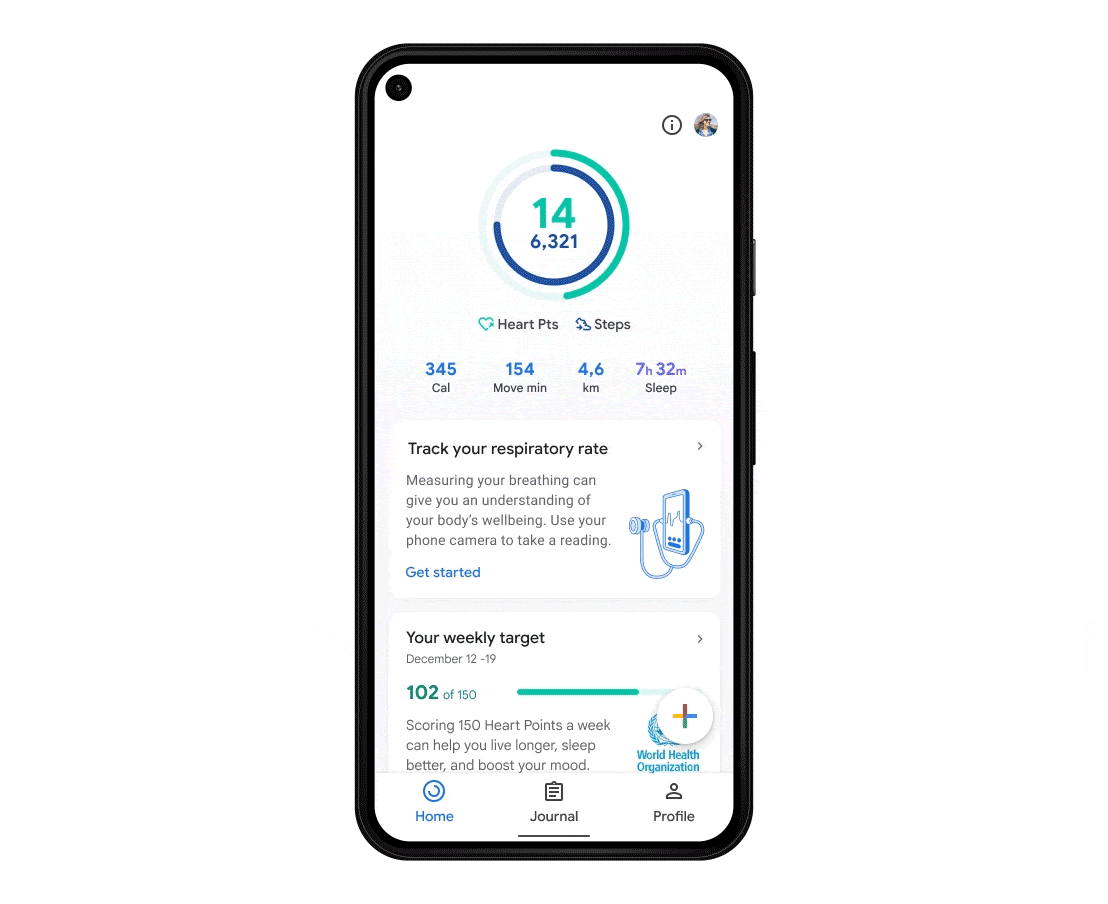Google’s Pixel phones will soon help you track heart rate and respiratory rate using just the camera. The feature will be made available in Google Fit app for Pixel phones.
The feature will be expanded to other Android phones, but google has not spelt it out clearly as to which devices will get this next.
"Starting next month, Google Fit will allow you to measure your heart rate and respiratory rate using just your phone's camera. These features will be available in the Google Fit app for Pixel phones, with plans to expand to more Android devices," Shwetak Patel, director of Health Technologies, Google Health, said in blog post.
Evidently, these measurements aren't meant for medical diagnosis or to evaluate medical conditions, but Google hoped that it can be useful for tracking and improving day-to-day wellness.
Google has completed initial clinical validation examining accuracy among healthy individuals as well as those with respiratory conditions that might impact measurement.
- These are the best Wear OS smartwatches that'll be compatible with Google Fit
- These are best workout apps you can use
How will it be done?

Google Fit will use the smartphone camera and a computer vision technique called optical flow to detect respiratory rate through subtle movements in the chest for measuring respiratory rate.
The process used to detect heart rate is called photoplethysmography (PPG), which usually is picked up using specialised sensors.
For the heart rate, it will use the smartphone camera to detect specific colour changes in the fingertip that happen when freshly oxygenated blood flows from your heart through your body.
"To measure your respiratory rate, you just need to place your head and upper torso in view of your phone's front-facing camera and breathe normally. To measure your heart rate, simply place your finger on the rear-facing camera lens," Patel said in his post.
Once the measurements are made, you can choose to save them in the app to monitor trends over time, alongside other health and wellness information, Google added.
Every-day devices as health instruments
Google said its algorithm is said to be accurate within one breath per minute on average on both groups. These features are also comparable to clinical grade devices.
"We developed both features — and completed initial clinical studies to validate them — so they work in a variety of real-world conditions and for as many people as possible."
Google added that its team of researchers, engineers, and clinicians are exploring how everyday devices and inexpensive sensors can give people the information and insights they need to take control of their health.
from TechRadar - All the latest technology news https://ift.tt/3tqeE6C


